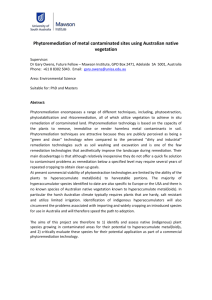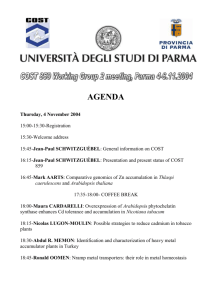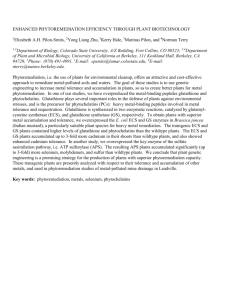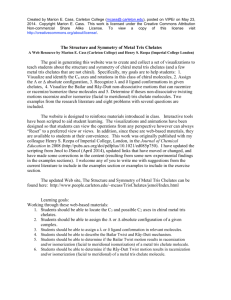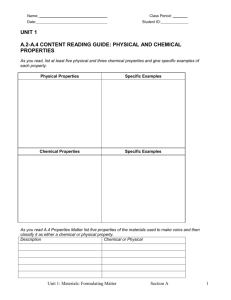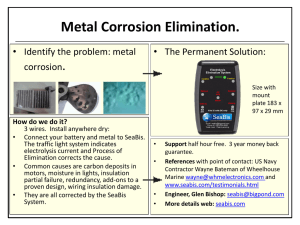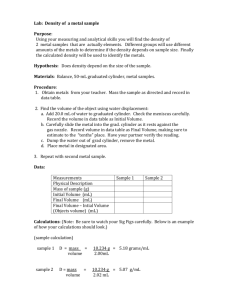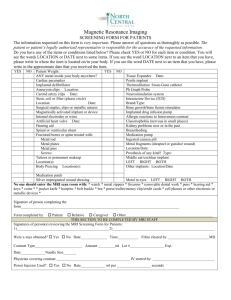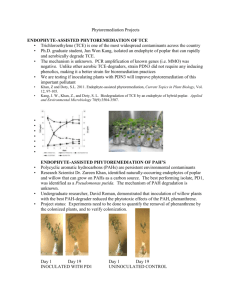Chelate Assisted Phytoremediation
advertisement
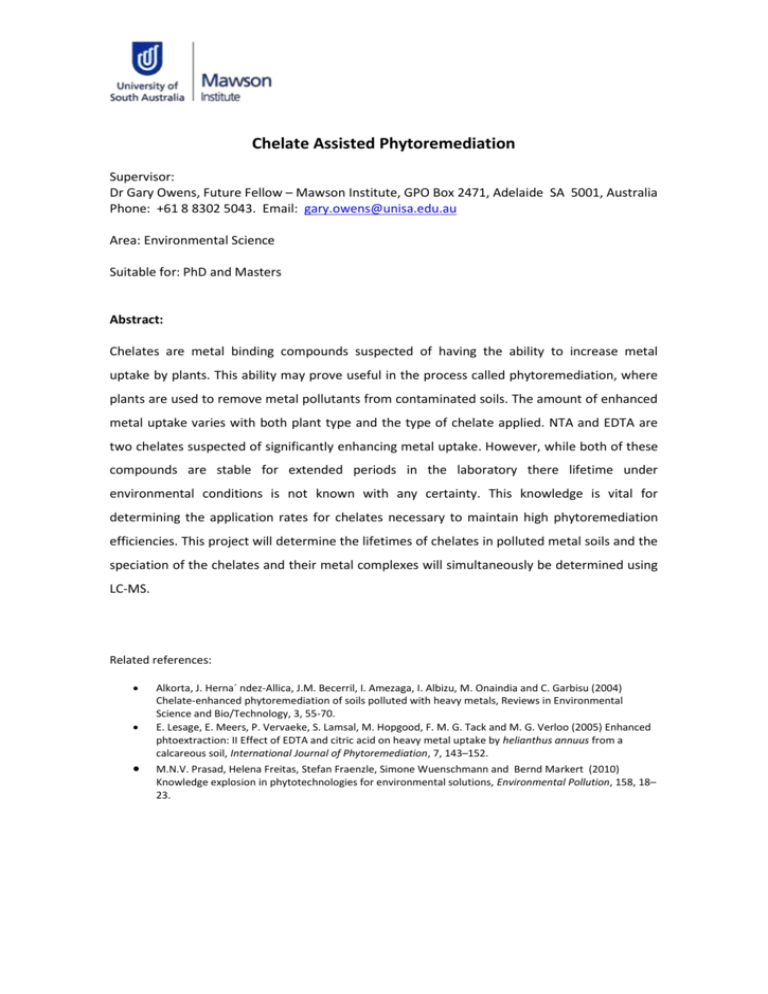
Chelate Assisted Phytoremediation Supervisor: Dr Gary Owens, Future Fellow – Mawson Institute, GPO Box 2471, Adelaide SA 5001, Australia Phone: +61 8 8302 5043. Email: gary.owens@unisa.edu.au Area: Environmental Science Suitable for: PhD and Masters Abstract: Chelates are metal binding compounds suspected of having the ability to increase metal uptake by plants. This ability may prove useful in the process called phytoremediation, where plants are used to remove metal pollutants from contaminated soils. The amount of enhanced metal uptake varies with both plant type and the type of chelate applied. NTA and EDTA are two chelates suspected of significantly enhancing metal uptake. However, while both of these compounds are stable for extended periods in the laboratory there lifetime under environmental conditions is not known with any certainty. This knowledge is vital for determining the application rates for chelates necessary to maintain high phytoremediation efficiencies. This project will determine the lifetimes of chelates in polluted metal soils and the speciation of the chelates and their metal complexes will simultaneously be determined using LC-MS. Related references: Alkorta, J. Herna´ ndez-Allica, J.M. Becerril, I. Amezaga, I. Albizu, M. Onaindia and C. Garbisu (2004) Chelate-enhanced phytoremediation of soils polluted with heavy metals, Reviews in Environmental Science and Bio/Technology, 3, 55-70. E. Lesage, E. Meers, P. Vervaeke, S. Lamsal, M. Hopgood, F. M. G. Tack and M. G. Verloo (2005) Enhanced phtoextraction: II Effect of EDTA and citric acid on heavy metal uptake by helianthus annuus from a calcareous soil, International Journal of Phytoremediation, 7, 143–152. M.N.V. Prasad, Helena Freitas, Stefan Fraenzle, Simone Wuenschmann and Bernd Markert (2010) Knowledge explosion in phytotechnologies for environmental solutions, Environmental Pollution, 158, 18– 23. About Adelaide: Adelaide is the capital of South Australia and offers a very high standard of living (top 6 in the world according to “The Economist”), with great climate, food, wine, beautiful unspoiled nature and beach environments, in an inexpensive setting. The Mawson Institute (MI) has recently been established at the University of South Australia, with strong support from the South Australian Government to research new manufacturing technologies. Manufacturing is an important and substantial part of South Australia’s economic base. The MI promotes a strategy based upon strong basic and applied research that encourages scientific and technological innovation within the manufacturing sector. Fundamental to this is the Institute’s multidisciplinary approach, building research teams in concentrations that encompass a diverse range of disciplines, and collaboration with partners from both academia and industry. The institute is based in two new state-of-the-art buildings with outstanding research facilities (see photo of the MM building). For more information on this project please contact the supervisor.
